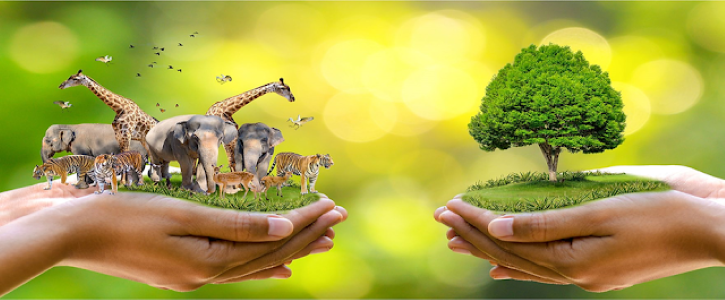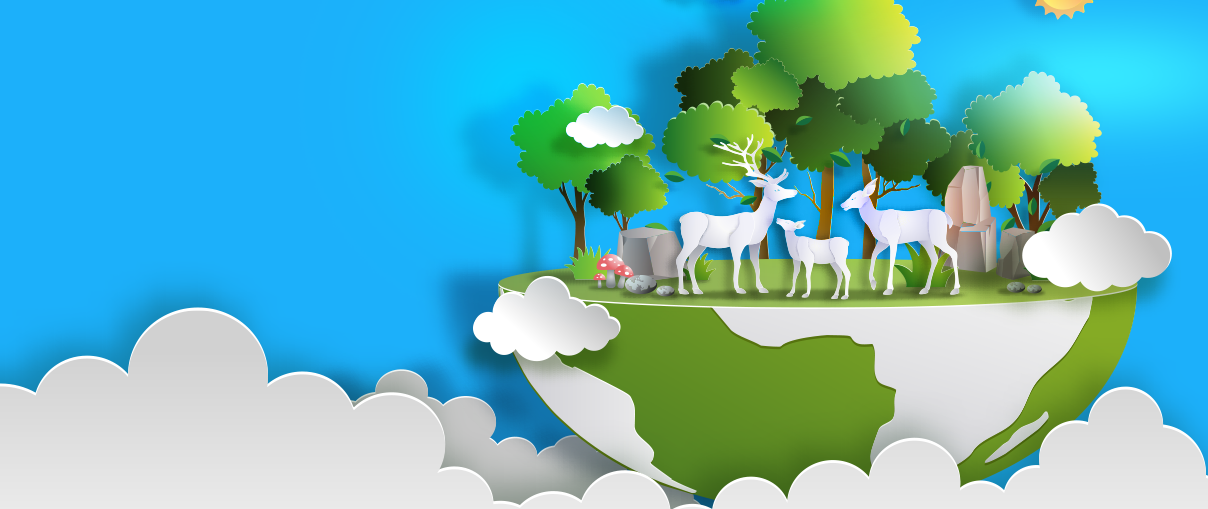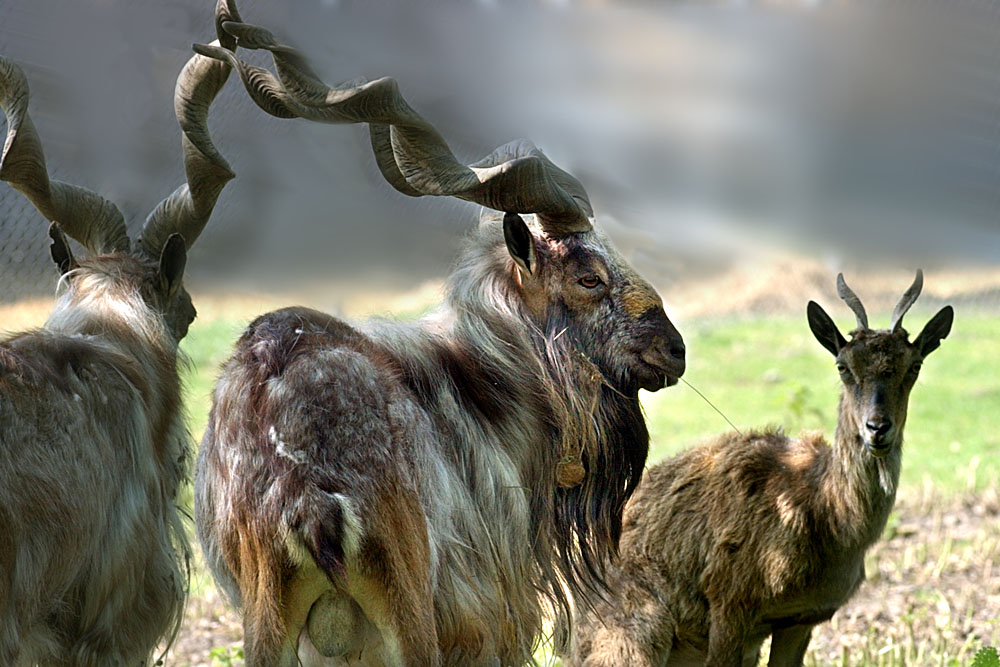
The planet Earth is facing a crisis. The natural life on our planet is rapidly declining, putting human societies in danger
Prof. Dr. Abdullah G Arijo
The planet Earth is facing a crisis. The natural life on our planet is rapidly declining, putting human societies in danger. Due to the scarcity of natural resources, we are forced to consider migrating to other planets or finding ways to use resources from other planets. However, these options are not practical or feasible now. Additionally, there is a severe shortage of mineral resources, and the earth’s reserves are running dangerously low.
Wildlife has long been considered the most sustainable source of energy as almost every part of animals, from hooves to horns, can be utilized. However, this notion is no longer true due to the decline of wild mammal biomass by 82%, the loss of approximately half of natural ecosystems, and the risk of extinction faced by one million species, all of which are primarily caused by human actions. The study, which took over three years to compile and involved more than 450 scientists and diplomats, highlights the dire consequences of human activities on our planet’s biodiversity.

Human activities are having a severe impact on our planet. While most people understand that pollution, resource depletion, and loss of biodiversity are pushing natural resources to the brink, it can be difficult to comprehend the scale and speed of the decline happening in the natural world. Sir David Attenborough has witnessed this firsthand and described humans as a plague on earth, summarizing in just a few words the widespread destruction that we are responsible for.
We’ve lost 60% of wildlife in less than 50 years
At the time of creation, Pakistan was known as “Hunter’s Paradise. Your name and you get any animal you would want. But, in the last 70 years, many valuable species have become extinct and quite a few are endangered.
There are probably quite a few endangered species. Indus dolphins, Pala Fish, Blue whales, and black rhinos are just a few but there are many more that don’t get so much attention.
There are currently around 16500 animals and plants that are endangered. An endangered species is at a high risk of becoming extinct which is when there are no longer any members of that species alive.
Numerous species are becoming extinct every day, and while some of it is due to natural causes, human activity is a significant contributor. Hunting and the destruction of habitats have led to the extinction of many precious species. It is estimated that due to human activity, the rate of extinction is between 1,000 to 10,000 times higher than the natural rate. This is the highest rate of extinction since the dinosaurs became extinct 65 million years ago.
There is an urgent need to take prompt action towards species conservation, which involves protecting species from becoming endangered. It is all about preserving biodiversity – the variety of life on earth. Some people may question why this is such a big deal. They may wonder why it matters if the population of a species decreases so much that it is in danger. They may think that as long as there are a few individuals left, such as those in zoos, the species can recover.
 It is important to understand that every living organism, regardless of its size, plays a crucial role in maintaining a healthy ecosystem. For instance, insects serve as pollinators for plants, with nearly 70 percent of pollination being conducted by them. However, the excessive use of pesticides is causing the rapid decline of beneficial insects, which could have devastating effects on agriculture.
It is important to understand that every living organism, regardless of its size, plays a crucial role in maintaining a healthy ecosystem. For instance, insects serve as pollinators for plants, with nearly 70 percent of pollination being conducted by them. However, the excessive use of pesticides is causing the rapid decline of beneficial insects, which could have devastating effects on agriculture.
Numerous species are becoming extinct every day, and while some of it is due to natural causes, human activity is a significant contributor
Genetic variation is crucial for a healthy population. A large variety of characteristics is important to prevent species from contracting and becoming extinct in case of environmental changes. Inbreeding in small populations increases the risk of inherited conditions in offspring. Large wild populations are essential for species survival. Endangerment can occur due to habitat destruction, climate change, overfishing/hunting, and invasive species.
We have a duty to preserve all species on the planet through conservation. Endangered animals can be protected in wildlife parks, and captive breeding programs can increase their numbers and educate the public. However, animals in captivity may not lead a normal life and may be at risk of inbreeding.
Protecting animals in their natural habitat involves creating protected areas such as national parks where trees cannot be cut down, roads and houses cannot be built, and hunting may be illegal. Range officers may be employed to enforce these rules. It is not just animals that are at risk, but also an alarming 70% of plant species that are endangered. Therefore, we need to protect them too by using plans that preserve endangered species. One such plan is to collect and store their seeds in seed banks. If a plant species goes extinct, these seeds can be grown to restore that population. To sum up, an endangered species is at risk of extinction due to human activities. Protecting vulnerable species is an important part of conservation, and there are many methods, including wildlife parks and protected areas.
Pakistan is a mountainous country situated between Iran, India, and Afghanistan. It shares borders with both the Himalayas and Hindu Kush Mountain ranges, as well as the Arabian Sea. The country is home to a diverse ecosystem that includes several rare and endangered animals. Over 90 species of mammals, birds, and reptiles are categorized as critically endangered, endangered, vulnerable, or near the threat of extinction in Pakistan. These animals face threats from human overpopulation and habitat loss, as well as the very landscape of the country. The physical barriers created by the Himalayas cause some animal populations to become isolated. These isolated populations often evolve into separate species found nowhere else, making them naturally endangered.
Animal extinction in Pakistan is caused by several factors. The depletion of habitat due to livestock grazing and human activities poses a significant threat to endangered species. Such organisms become endangered mainly due to the loss of habitat and genetic variation. While habitat loss can occur naturally, human activities exacerbate the problem. For example, dinosaurs became extinct about 65 million years ago due to the loss of their habitat.
The leading causes of extinction are now thought to stem from human activity, with nearly all threatened species also at risk. The biggest threats include habitat loss and degradation, the introduction of non-native species, over-exploitation, and pollution and disease.

We all must investigate the hypothesis of Stephen Hawking, who once said that “Humans Must Leave Earth Within 600 Years”. This estimate is an increase from his previous timeline of 100 years. Timeline is not a big concern; however, Stephen Hawking’s Doomsday looks no more a Mistry. This hypothetical day when humans will supposedly have to leave Earth has been likened to a “Doomsday.” Hawking has asserted multiple timelines for this eventual moment, but he is certain that, at some point, we will have to find a new home.
Fine, but the question is that humans are not the only partners of the ecosystem, Producers, primary secondary, and tertiary consumers, and after all decomposers are required to maintain the balance of the future biosphere. If humans somehow managed to move to another planet, the billion-dollar question is “Wildlife” on another planet.
It is therefore imperative to restore the planet Earth to the level that can help us all go or this dream of migration to another planet may never come true. Hence conservation of planet earth is the only option.
__________________
 Prof. (R) Dr. Abdullah G. Arijo is Advisor and Visiting Professor, SBBUVAS, Sakrand, Pakistan. He is Ex-Chairman, Department of Parasitology, Sindh Agriculture University and Ex-Advisor Academics & P&D to Vice Chancellor SAU Tandojam
Prof. (R) Dr. Abdullah G. Arijo is Advisor and Visiting Professor, SBBUVAS, Sakrand, Pakistan. He is Ex-Chairman, Department of Parasitology, Sindh Agriculture University and Ex-Advisor Academics & P&D to Vice Chancellor SAU Tandojam
Also read: ECO-WASTE & OUR RESPONSIBILITY
Good luck 👍
Good luck nice job carry on sir❣️
[…] Read: CONSERVATION IS IMPERATIVE FOR OUR FUTURE […]
[…] Read: CONSERVATION IS IMPERATIVE FOR OUR FUTURE […]